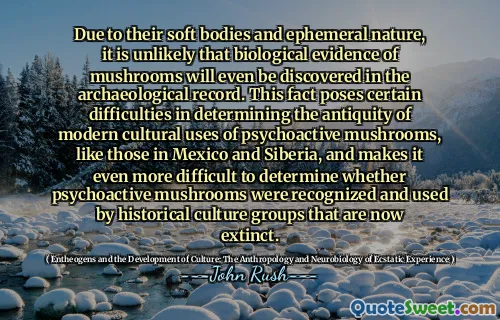"Entheogens and the Development of Culture" explores the intersection of anthropology and neurobiology, focusing on how ecstatic experiences induced by entheogens play a transformative role in culture. The book examines how various societies have utilized these substances in rituals and spiritual practices, framing them as catalysts for cultural evolution and social cohesion. It highlights the historical significance of these practices and their implications for understanding human behavior and social structures.
The authors delve into the neurobiological effects of entheogens, illuminating the scientific mechanisms underlying ecstatic experiences. They discuss how these substances can alter perception, enhance creativity, and foster interconnectedness among individuals, which may contribute to cultural innovations. This scientific perspective enriches the anthropological analysis, bridging the gap between cultural practices and brain function.
In conclusion, the book presents a comprehensive view of the profound impact of entheogens on human culture, illustrating their role in shaping beliefs, art, and social norms. It encourages a holistic understanding of how ecstatic experiences can influence both individual consciousness and collective cultural phenomena, underscoring the importance of these substances in the development of human societies throughout history.
More »
Today Birthdays
1729 -
Edmund Burke
1949 -
Haruki Murakami
1954 -
Howard Stern
1876 -
Jack London
1993 -
Zayn Malik
1951 -
Kirstie Alley
1863 -
Swami Vivekananda
1923 -
Alice Miller
1987 -
Naya Rivera
1825 -
Brooke Foss Westcott
1944 -
Joe Frazier
1951 -
Rush Limbaugh
1964 -
Jeff Bezos
1978 -
Jeremy Camp
1628 -
Charles Perrault
1856 -
John Singer Sargent
1970 -
Kaja Foglio
1953 -
Rick Santelli
1986 -
Gemma Arterton
1968 -
Raf Simons
1958 -
Christiane Amanpour
1966 -
Olivier Martinez
1996 -
Ella Henderson
1917 -
Maharishi Mahesh Yogi
1949 -
Ottmar Hitzfeld
1928 -
Ruth Brown
1968 -
Heather Mills
1946 -
George Duke
1968 -
Rachael Harris
1923 -
Ira Hayes
